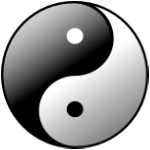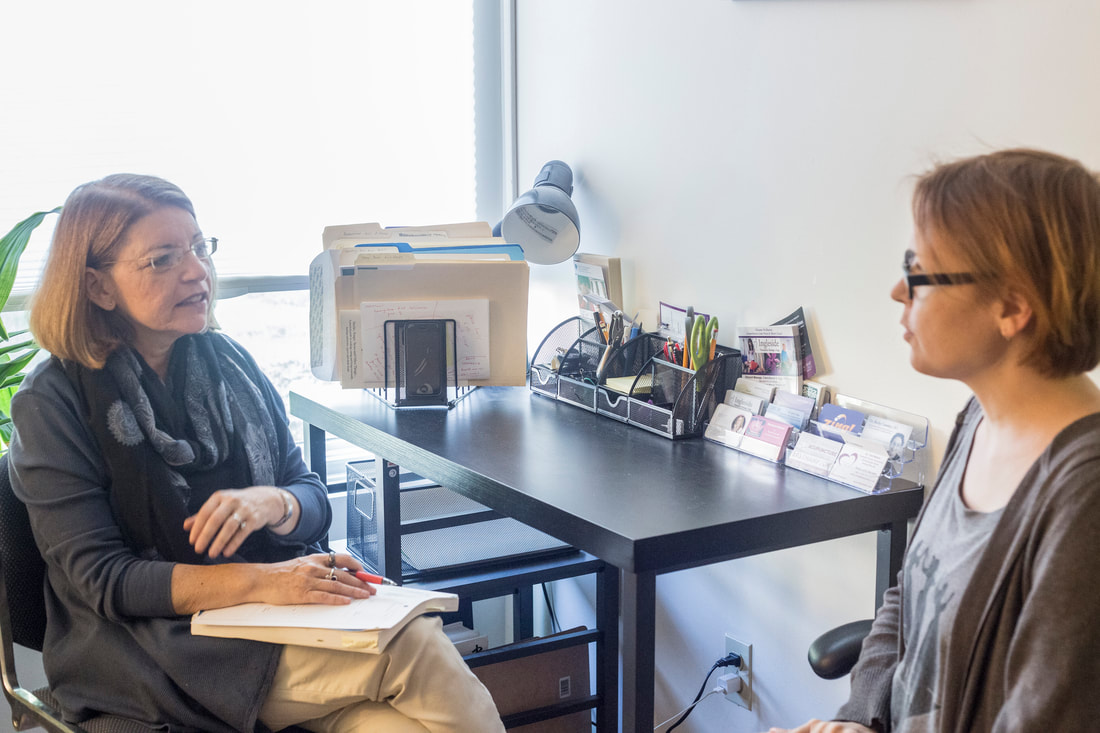 Acupuncture is about balance, both in the outside world and inside our bodies. Yang – active, light, daytime energy – is balanced by yin – nurturing, dark, nighttime energy. When these two opposing forces are in balance there is health. As we go through life with its stresses and physical and emotional assaults we find ourselves in places of imbalance. The purpose of this newsletter is to help you bring your body back into balance. The principles that I recommend are applicable for all of us whatever our age, our health or our socioeconomic status. My basic belief is that we all can do things to bring ourselves closer to the goal of balance and that health is achieved one person, one action and one moment at a time. Balance is something that you arrive at by slowly shifting your focus and attention, with a lot of compassion. This newsletter is not about extreme interventions, the latest fad diet or exercise. Rather it is about slow and steady change. The kind of change that occurs day to day and becomes the habits that form the foundation of a healthy balanced life. The following steps will take you through the process of choosing and integrating one habit that will enhance your life in a positive way and become a part of this foundation. Create Your Activity 1. Choose Wisely Choose something you want to do, rather than something you think you should do. Choose something that you want to do tomorrow and also three years from now. Choose an activity that you can do given the present circumstances and resources of your life. If, for example, you want to join a gym make sure there is one that you can easily get to and that is open at hours that are convenient for you. Make sure that you can afford the cost of membership. I believe that each of us already knows of at least one thing we can do to improve our lives. If you have a long list of things, choose the one that feels most meaningful to you. 2. Think Small, Stay Simple Begin with a small, achievable task rather than elaborate, unattainable goal. Focus on the task itself. If you dream of writing a novel, you might want to begin by setting aside a certain amount of time each day to write. Focus on the activity, rather than the goal. Goals are admirable, but generally achievable only if we focus on the activities that are necessary for their fruition. Thoreau said, “Success usually comes to those who are too busy to be looking for it.” 3. Be Creative Sometimes we are in situations where we are unable to do the things we want to. Here’s where creativity comes into play. If your activity is to spend an hour each week at the ocean but you live in landlocked Iowa, you might get a video of ocean scenes, a CD with the sound of waves breaking on the sand, suntan lotion and some shells. Develop Intention 4. Commit to the Activity Commit to spending at least one hour each week on this activity for the next three months. This can be 10 minutes everyday, 20 minutes three days a week or one hour once a week. If you cannot or do not want to commit to one hour a week, choose something else. If you are already committed to spending time each week that supports a balanced life, than commit to bringing more attention to that time. (See Step 10.) 5. Write It Down There is something about the act of writing something down that solidifies it. It serves both to define the action and as a symbol of intent. There is a shift that happens when something goes from idea to tangible form. There are many ways of writing something down. You can do it very privately, on a folded up piece of paper or in a journal. You can write something and put it on your mirror or refrigerator. If you like, you can email me ([email protected]) your action and I will check in with you in a month to see how you are doing. Just as the action itself comes from an inner, personal space so will the writing of it. Do what feels right to you. 6. Begin If this activity is worth doing, it is worth doing now (or at least within this week.) This piece is often the most difficult. Waiting for the perfect moment may mean putting off something indefinitely. Just start now. 7. Begin Again None of us are perfect. Our lives are complicated. Stuff unexpectedly happens. So if you are unable for whatever reason to do your chosen activity for a day, a week or even a month, begin again. Learn from your experience. Sometimes it takes a few false starts to develop a good habit. In the long run you are better off starting again then giving up on something important to you in your life. I once read that the people who succeed the most are also those who fail the most. Winston Churchill said, “Success is the ability to go from one failure to another with no loss of enthusiasm.” 8. Get Help Bring into your life people who support you in your journey towards health whether it’s a friend, a medical care provider or a significant other. Sometimes we need help. Intervention is often necessary to keep our bodies healthy. 9. Reward Yourself Taking care of yourself is an accomplishment. Often our busy lives do not support choices that keep us healthy. Acknowledge the time and effort put into your new habit. Congratulate yourself. Tell your friends. Go wild! 10. Bring Intention to Your New Habit Rather than going through the motions, use your time each week to connect more deeply with yourself. Good health is a sensory experience. If you are eating healthier take this opportunity to fully taste your food. If you are spending an hour each week listening to music or looking at art, fully see or fully hear. Whatever you have chosen to do be sure to notice your breath. We cannot live for more than a few minutes without breathing. The quality of our breath, the way we breathe, to a large extent determines the quality of our lives. Whatever you are doing you are also breathing. As you embrace your newly chosen activity, breathe deeply into your lower abdomen. GO BACK TO STEP ONE Whether you have successfully integrated a new, healthy habit into your life or have experienced three months of hell, or most likely, are somewhere in between, go back to step one. Learn from your accomplishments as well as your mistakes. You now have the advantage of experience in this process.
0 Comments
|
AuthorIn practice for over 20 years, Bonnie Diamond offers individualized, heart-centered care using a pain-free, Japanese style of acupuncture. Her work is influenced by her nine year struggle with and complete recovery from Chronic Fatigue Syndrome. Archives
April 2024
Categories
All
|
Serving Easthampton, northampton, Holyoke, Springfield, Chicopee, Westfield and Western Massachusetts
|
Hours are Tuesday-Thursday, 11am-7pm
|
247 Northampton Street, #27 Easthampton, MA 01027 781-718-6325 Get directions Get information on other complementary health resources recommended by Staying in Balance. Pioneer Valley Community Resources |
Copyright 2000-2022 All rights reserved.

